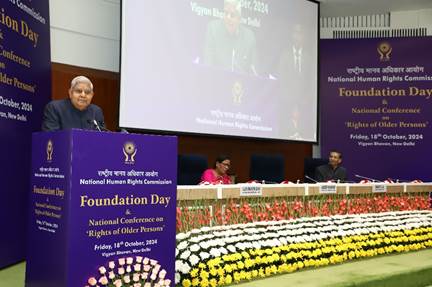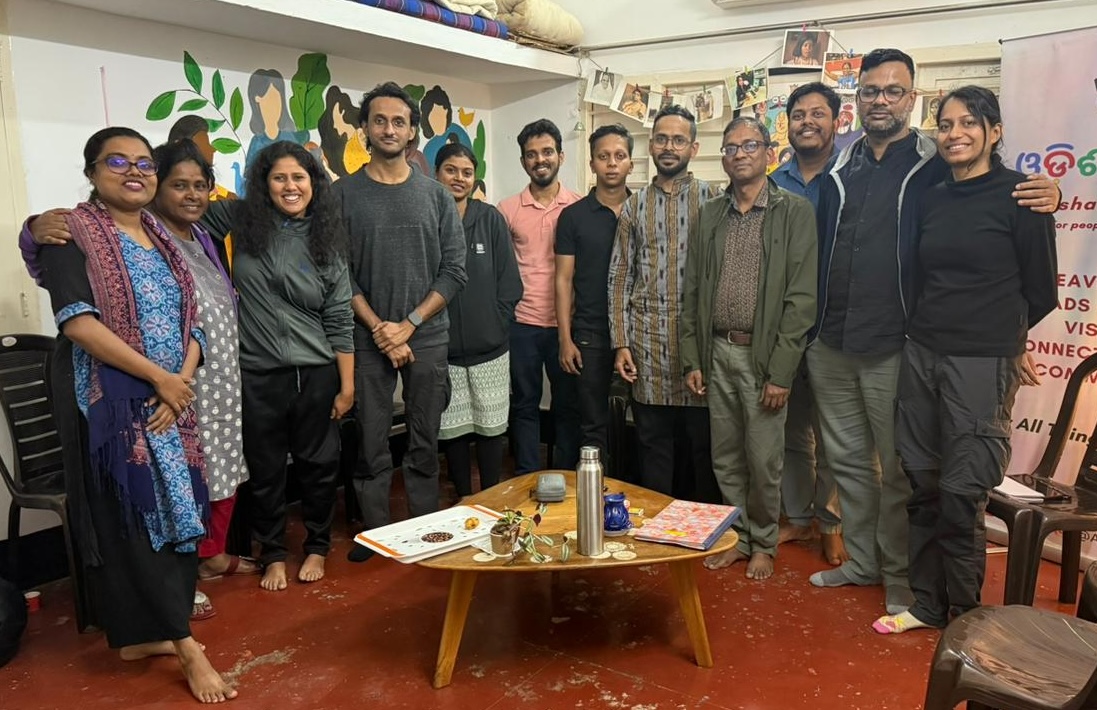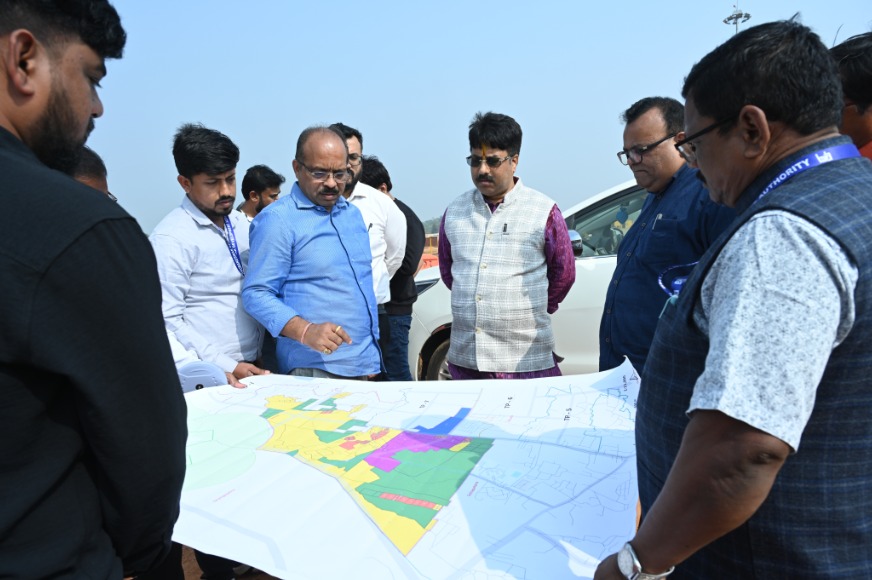New Delhi: The National Human Rights Commission (NHRC), India marked its 31st Foundation Day with a national conference on the rights of older persons at Vigyan Bhawan, New Delhi. The Commission, established on October 12, 1993, organized the event to reflect on its commitment to upholding human rights and addressing emerging challenges.
Vice President of India, Jagdeep Dhankhar, graced the occasion as the Chief Guest, emphasizing India’s exemplary record in preserving human rights. He praised Bharat’s efforts in safeguarding the rights of minorities, marginalized communities, and vulnerable populations, remarking that isolated incidents should not define the country’s human rights achievements.
Dhankhar also criticized the use of human rights as a political tool by certain global entities, urging for greater recognition of India’s civilizational role as a protector of human dignity. He expressed concern over the global silence on human rights violations elsewhere in the world and encouraged every Indian to become a champion of human rights, stressing the importance of keeping national interests above political agendas.
Highlighting India’s ongoing welfare efforts, Dhankhar referenced the government’s free ration distribution to over 850 million people since the COVID-19 pandemic, pointing out the country’s commitment to equality. He noted that India’s direct transfer of benefits has significantly reduced corruption and bolstered transparency.
The Vice President lauded India’s transformative progress over the past decade, describing its non-discriminatory development that has improved quality of life for all citizens. He cited achievements in affordable housing, gas connections, clean drinking water, internet connectivity, and road infrastructure, underlining that these milestones serve as pillars of human rights in India.
Vijaya Bharathi Sayani, Acting Chairperson of the NHRC, spoke on the Commission’s role in promoting dignity, freedom, and empowerment for marginalized groups, including transgender persons. She called for a greater focus on environmental rights, advocating for sustainable practices to combat pollution.
Reflecting on the NHRC’s achievements, Sayani recounted landmark cases where the Commission took decisive action, including efforts to address custodial deaths, bonded labor, and the exploitation of marginalized groups. She highlighted the Commission’s role in advocating for police reforms, particularly in addressing custodial violence.
Sayani also drew attention to a notable case in Sandeshkhali, West Bengal, where the NHRC responded to reports of harassment and sexual assault against women. The Commission’s inquiry revealed a climate of fear and intimidation, preventing victims from seeking justice.
In the past year, the NHRC has investigated 30 cases of human rights violations, conducted spot visits to prisons, schools, and health centers, and monitored the implementation of government programs. The Commission’s Special Rapporteurs and Monitors focus on crucial issues such as police reforms, children’s rights, and health.
Bharat Lal, NHRC Secretary General, welcomed attendees by showcasing the Commission’s broad mandate. Over the last year, the NHRC registered over 68,000 complaints and resolved nearly 70,000 cases, providing ₹17 crore in compensation to aggrieved individuals. He also highlighted the Commission’s national consultations and discussions with government officials, NGOs, and subject matter experts, emphasizing the Commission’s active role in promoting women’s safety and advocating for the rights of widows and children.
The event was attended by members of State Human Rights Commissions, judiciary representatives, diplomats, civil society organizations, and human rights defenders, reaffirming NHRC’s role in fostering human rights awareness at both national and international levels. The Commission continues to play a significant role in global forums, including the Asia Pacific Forum of Human Rights Institutions and the Global Alliance for National Human Rights Institutions.





